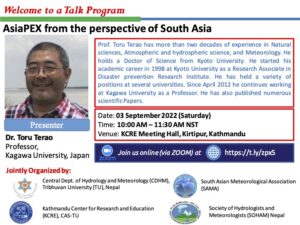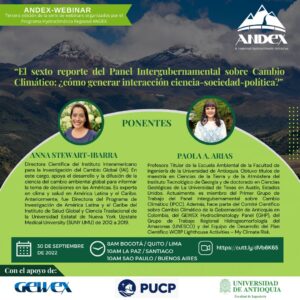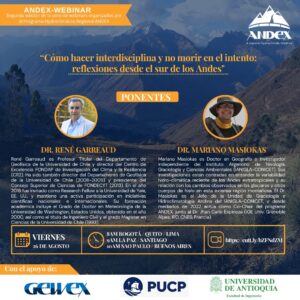The objectives of Committee on Space Research (COSPAR) Assemblies are to promote on an international level scientific research in space, with emphasis on the exchange of results, information and opinions and to provide a forum, open to all scientists, for the discussion of problems that may affect scientific space research.
For more information and registration visit the official meeting website at https://www.cospar2024.org
The fifth edition of the Committee on Space Research (COSPAR) symposium will will address the broad topic of “Space Science with Small Satellites” and covers the rapid advances made in the last decade in small, micro, and nano-satellites for space science. The symposium in addition will cover the emerging space debris issue in Low-Earth Orbit. Another focus area will be capacity building using small satellite technologies and the perspective of emerging space nations such as Singapore.
For more information, registration and abstract submission visit the official meeting website at https://www.cospar2023.org
The 2023 Global Water Futures (GWF) Annual Science Meeting dates and location have been confirmed:
When: May 15-17, 2023
Where: TCU Place, Saskatoon, Saskatchewan
GWF2023 is hosted by Global Water Futures, University of Saskatchewan, and the Global Institute for Water Security.
Please visit the official meeting website at https://gwf.usask.ca/gwf2023/index.php.
Open call for abstracts until 31 October 2022!
Representatives of scientific disciplines working on the complexity of processes in river mouth systems and marginal seas, e.g., Earth and life scientists, climatologists, archaeologists, historians, socio-economists, modelers, and IT specialists, are invited to this online conference to jointly discuss the effects of climate change and anthropogenic activities in the area of densely populated river mouth systems on the marine and coastal environment. Oral contributions are welcome!
Rationale
River mouths such as deltas, coastal embayments, and estuaries form the gateways from the continents to the oceans, which have been attractive for people to settle along over the long period of human settlement history. The natural environment of marginal seas and their coastal zones are increasingly threatened by climate change induced rising sea-level, floods, storms, tsunamis, coastal erosion, and anthropogenically induced environmental hazards. To mitigate the threats effective strategies for sustainable development of the coastal zones have to be elaborated.
Since 2020, an international initiative promoting Marginal Seas Research has been operating within the frame of the Deep-time Digital Earth Program (DDE) of the IUGS. The mission of the initiative is the development of a general strategy for describing the processes in marginal seas holistically as an interaction between geo-, ecosystem, climate and socioeconomic systems at the zone of transition between continents and oceans.
To study the interrelation between natural and anthropogenic drivers exemplarily it is planned to promote targeted research for a deeper understanding of the river mouth systems’ development from the pristine past to the anthropogenically dominated present.
Abstract submission deadline is 31 October 2022. Registration deadline is 1 December. Registered participants will receive a zoom link shortly before the conference. The conference language is English.
The Young Earth System Scientists (YESS), Young Hydrologic Society (YHS), and GEWEX are pleased to announce the Early Career Workshop (ECR) Workshop on “Reflecting on African Early Career Researchers’ role in Earth Observations and Geospatial Science in the Service of Sustainable Development Goals.”
This workshop will take place alongside the 13th African Association of Remote Sensing of the Environment (AARSE) International Conference on Earth Observations and Geospatial Science, or AARSE2022. The date for the workshop is 23 October 2022.
Third webinar in the ANDEX series: “The sixth report of the Intergovernmental Panel on Climate Change
Climate: how to generate science-society-politics interaction?
Guest speakers are Anna Stewart-Ibarra, Scientific Director of the Inter-American Institute for Global Change Research (IAI), and Paola Arias, Professor at the Environmental School of the Faculty of Engineering from the University of Antioquia.
To attend this webinar on 30 September 2022, please register at https://cutt.ly/dVb6K65
Simultaneous translation to English is available

2nd Webinar of the ANDEX Regional Hydroclimate Project on Friday 26 August at 13:00 UTC with speakers:
Dr. René Garreaud, Professor of the Department of
Geophysics of the University of Chile and director of the Center for FONDAP Excellence in Climate and Resilience Research (CR2), will talk about the experiences and challenges of doing inter-disciplinary research in Chile.
Dr. Mariano Masiokas, Researcher at the Argentine Institute
of Nivology, Glaciology and Environmental Sciences (IANIGLA-CONICET), presents the Observatorio de Nieve (https://lnkd.in/g5k35eAS), a recent open access website to monitor the snow cover changes across the Chilean and Argentinean Andes.
Simultaneous translation in English is available!
To register go to https://cutt.ly/bZFNdZM.
The main objective of the GEWEX-supported Land surface Interactions with the Atmosphere over the Iberian Semi-arid Environment (LIAISE) project is to improve the understanding of land-atmosphere-hydrology interactions in a semi-arid region characterized by strong surface heterogeneity owing to contrasts between the natural landscape and intensive agriculture. Understanding the impact of anthropization on the lower atmosphere and representing it in models have been inhibited due to a lack of consistent and extensive observations. In recent years, land surface and atmospheric observation capabilities have advanced while irrigated surfaces have been increasing, leading to a renewed need for dedicated field campaigns over contrasting (climate) regions, especially over so-called breadbasket areas where climate change is directly threatening our food production.
The LIAISE study area is located over the Catalan counties of Urgell and Pla d’Urgell within the Ebro basin in northeastern Spain which is characterized by a semi-arid hot, dry Mediterranean climate. There is a sharp delineation between a vast, nearly continuous intensively-irrigated region and the dryer natural zone to the east. The main water source consists of artificial reservoirs located to the north in the Pyrenees mountains, and this water is brought into the irrigated area using a highly anthropized river and canal network. This conference invites contributions covering topics that include: modeling studies aimed at including anthropogenic processes (land surface, meteorological or hydrological) within or including the LIAISE area addressing the main project objectives, studies using observational data from the LIAISE field campaign, and applications using remote sensing data (from planes, drones or satellites) to estimate irrigation requirements or evapotranspiration over the region. We encourage contributions from the GEWEX Determining Evapotranspiration (ET) Crosscutting Project.
The 17th WCRP/BSRN Scientific Review and Workshop will be held from the 27th to 30th of June 2022. The Sustainable Resource (Directorate D) of the Joint Research Centre of the European Commission will host it in Ispra, Italy.
The workshop, in a hybrid form, is aimed to report on the status of the network and reviewing the most recent scientific achievements and technical activities related to BSRN world. The agenda with remote links to attend will be available on BSRN meeting pages and distributed through the BSRN mailing lists as soon it will be finalized. Proposal for presentations, either for remote or in presence participation (the latter closed now), should be sent within the 20th of June to Christian Lanconelli or Laura Riihimaki (see BSRN contact pages).
BSRB would like to acknowledge the Joint Research Centre and in particular Nadine Gobron and Mark Dowell for kindly hosting the upcoming meeting.



